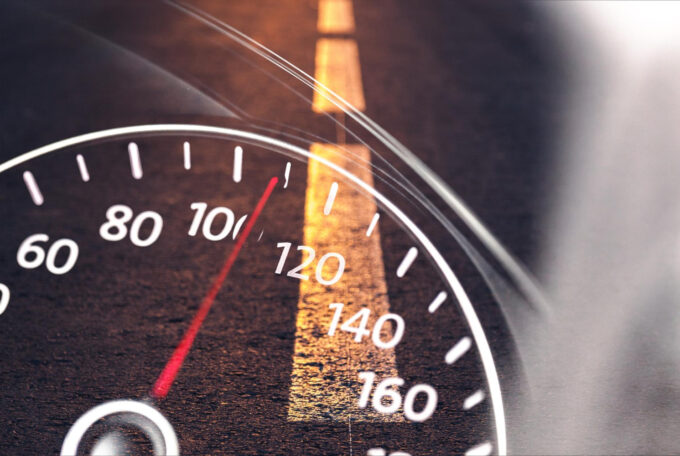You’re driving down the highway and see a cop car. You keep an eye out in the hopes that you won’t be pulled over for speeding, but soon enough you hear that tell-tale siren. Between the nerves of getting stopped on the road and the mild annoyance of being delayed, you can feel your brain trying to figure out how much lighter your wallet will be when this ends.
How much is a speeding ticket, anyway? When it comes to speeding ticket fines in Louisiana, the costs can really pile up depending on your surroundings. Here we’ll walk you through exactly what these costs may be, what the system is for additional fines, and the introduction of an alternative option for paying in Louisiana.
How Much Is a Speeding Ticket?
A speeding ticket isn’t set at a certain amount of money. It depends on how fast you were going, whether you were in a construction zone or school zone, and whether you were wearing a seatbelt.
In addition to the speeding fine itself, there’s also a court cost you may have to worry about. This is often more expensive than the fine. All in all, you should expect to pay at least $100 for all the costs.
Here are some ways you might end up having to pay extra fines for speeding in Louisiana:
1. You were speeding in a construction zone.
Watch out for this, because this means your speeding fine will be doubled.
2. You were speeding in a school zone.
Just like a construction zone, a school zone is a protected area. If you speed here, your fine will be doubled as well.
3. You were texting and driving.
This is actually quite a hefty fine—$250 for the first offense.
4. You (or another adult passenger) weren’t wearing a seatbelt.
This is an additional $50 on top of your speeding fine.
5. A child in the car wasn’t wearing a seatbelt.
For the first offense, this could be another $100. If it’s the second offense, you’re facing a $250 extra charge.
For more on the costs surrounding a speeding ticket, read our post detailing the specifics.
The Pre-Trial Diversion Route
There is a new method of paying tickets in Louisiana that could save you time, money, and the ding on your record. It’s optional on your end, but there doesn’t seem to be much of a downside.
This method is part of something called pre-trial diversion, or PTD for short. Before the program covered speeding tickets, it was mainly used as a way to divert nonviolent criminal offenders toward rehabilitation programs and away from the jail system. Specifically, when it relates to speeding tickets, it’s called the Traffic Diversion Program.
Don’t worry, being in the traffic version of PTD does not mean you were in danger of going to jail before being offered this option. The traffic diversion program uses some of the same logic as an ordinary pre-trial diversion, but it is specifically for people with speeding violations.
It only applies to people who’ve gotten a speeding ticket for a speed below a certain limit. This limit differs by jurisdiction, in some parishes, a person loses eligibility if driving more than 16 miles per hour above the speed limit.
If your speeding ticket was attached to multiple violations, or you’ve had violations in the past, that might affect your eligibility depending on the severity.
Choosing the traffic diversion option works pretty similarly to paying an ordinary speeding ticket. In some jurisdictions, you’ll just pay a fine and be on your way. In others, you’ll have to read a driving safety pamphlet or attend an online class to complete the process.
Either way, the benefit of choosing this option is that you won’t be left with a mark on your record, and you won’t have to pay any court costs. In some cases, the fee you’ll have to pay may be lowered or even waived.
Most of the difference is felt on the other side of the process. Rather than paying money that will go to a public defender, your money will go to the District Attorney’s office.
Traffic diversion is a new option that has some benefits, but it’s not for everyone. If your jurisdiction requires an online class that you don’t have the time to take, this might not be the best choice for you. And if your ticket was for excessive speeding or you have additional violations on top of the speeding violation, you might have to go a different route.
Contesting Your Ticket
There are plenty of reasons to try contesting a ticket if you believe you weren’t in the wrong. The points on your driving record can add up and lead to a suspension of your driver’s license. Even before this, any blemish on your record can make it harder to get insurance, or even get a job.
If you don’t wish to contest a speeding ticket, these charges are actually quite easy to pay in Louisiana. However, if you think you’ve got a case and that you weren’t in the wrong, you’ll want to prepare well to contest the ticket.
Only 5 percent of speeding tickets are actually contested, and of those, 1/3 of the cases are dismissed. If you want to make sure you can win the case, you’ll want to make sure you act proactively.
Final Word on Speeding Tickets
Getting a speeding ticket isn’t fun for anyone, but with the right knowledge handy, you’ll be able to navigate the situation clearly.
So how much is a speeding ticket? It depends on the circumstances of the situation and what you choose to do after.
If you have recently gotten a speeding ticket in Louisiana, make sure you know how much the fine should be, be aware of the traffic diversion option, and consider contacting an attorney if you’d like to contest the charge.





